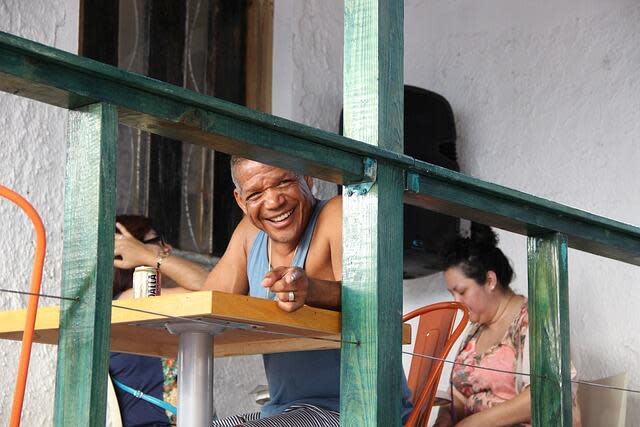Puerto Rico Marks 125 Years Of United States Occupation

This week marks the 125th anniversary of American control of Puerto Rico. The anniversary is bittersweet, given the island’s colonial history and tension with the U.S. The milestone also highlights calls to change the status of Puerto Rico to allow the island to have greater political rights or autonomy.
Spanish-American War and American colonization
On July 25, 1898, the U.S. military began occupying Puerto Rico as part of the Spanish-American War. At that time, the United States had gone to war with Spain over another Spanish colony, the island of Cuba. Though Spain had claimed Cuba, the United States had significant investments in the island’s sugar production and a U.S. military presence to protect its interests. The destruction of the USS Maine while docked at a port in Havana — blamed on Spain but probably an accident — led the U.S. to declare war on Spain. By the end of the conflict, the U.S. had defeated Spain and seized its colonies, including Puerto Rico, Guam and the Philippines.
Since the American military took over Puerto Rico 125 years ago, the island and its people have faced an unequal and uncertain relationship with the U.S. Puerto Rico is classified as an “unincorporated territory” of the United States — separate from the U.S. but controlled by it. The island has some degree of domestic political autonomy, but the federal government sets many of its policies. Puerto Ricans were granted citizenship in 1917, during World War I. Those living in Puerto Rico cannot vote for president or vice president. However, Puerto Ricans living within the 50 U.S. states can vote in presidential elections. Additionally, Puerto Rico does not have full representation in Congress.
Pushes for independence or statehood
Puerto Rico and its residents’ inequalities have led to movements to change the island’s status. Six votes have been held on the island between 1967 and 2020 to give Puerto Ricans the option of changing their status. Though they vary, each has presented various options, such as Puerto Rico becoming an independent nation or transforming it into a state within the U.S. So far, only a fraction of Puerto Ricans have voted for independence. Statehood has been a more popular option. In 2020, over 52% of Puerto Ricans supported statehood. Still, such a change would require Congress’s action, which has been unenthusiastic about altering Puerto Rico’s status.
There has been some movement coming from Washington in recent years toward statehood. Notably, the House passed legislation in 2022 allowing Puerto Ricans to hold a binding vote on statehood. All House Democrats and over a dozen Republicans supported the measure. Though it did not clear the Senate, such a move demonstrated the growing consensus, at least among Democrats, toward statehood.
“For the first time in our nation’s history, the U.S. recognized its role as a colonizing force,” Rep. Alexandria Ocasio-Cortez (D-N.Y.) said as she presided over the 2022 vote, adding that the resolution did not favor any particular outcome for Puerto Rico but “allows Puerto Ricans to choose.”
Whether Puerto Ricans will ultimately get to choose their fate remains an open question. For now, this week is a stark reminder of just how long that choice has been denied to the island.

